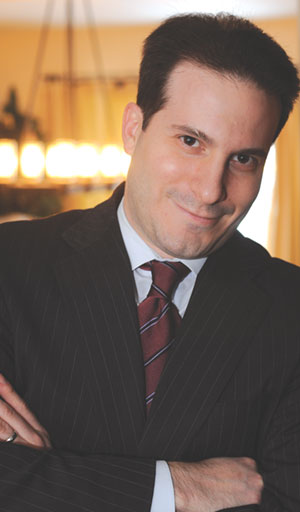Back-to-work legislation that ended a legal strike by Quebec Crown prosecutors and government lawyers is unconstitutional, according to the leaders of two associations.

In their view, the provincial legislation passed following an all-night session of the national assembly late last month violates the right to collective bargaining established in the 2007 Supreme Court of Canada decision in
Health Services and Support – Facilities Subsector Bargaining Association v. British Columbia.Marco Mendicino, president of the Association of Justice Counsel that represents almost 3,000 federal lawyers, has written federal Justice Minister Rob Nicholson urging him to step in and ask the Quebec provincial government to reconsider the bill.
“It must be repealed or will face being struck down by the courts,” he wrote. “Until then, the strike may be over, but the administration of justice in Quebec will remain in a crisis.”
Mendicino tells Law Times the terms of the bill that threaten daily fines of up to $35,000 for individuals and $125,000 for associations that engage in any future work action in the next five years are “beyond draconian.”
The bill also imposes a six-per-cent pay raise over five years for prosecutors. They were seeking raises of 40 per cent to bring them in line with their counterparts in other provinces.
“This appears to be a piece of legislation that was dusted off from perhaps 50 or 60 years ago, certainly from an era long before the Charter was introduced,” Mendicino says.
James Chaffe, president of the Canadian Association of Crown Counsel, says he’s “virtually
certain” of a challenge to a bill he calls “manifestly unconstitutional.”
B.C. Health Services was the first Supreme Court decision to recognize a limited right to collective bargaining as part of freedom of expression. The ruling reversed its position in previous case law.
“The right to bargain collectively with an employer enhances the human dignity, liberty, and autonomy of workers by giving them the opportunity to influence the establishment of workplace rules and thereby gain some control over a major aspect of their lives,” reads the majority decision by Chief Justice Beverley McLachlin and Justice Louis LeBel.
In Quebec, Crown prosecutors and government lawyers gained the right to strike in 2003 when the province refused to enter into binding arbitration for a previous deal.
By quashing a legal strike and imposing a settlement, the Quebec government has substantially interfered with the lawyers’ right to bargain collectively, according to Mendicino and Chaffe.
“It would seem that Quebec’s
lawyers have forfeited their fundamental rights under the Charter merely because they exercised them,” Mendicino says.
According to Chaffe, the legislation was particularly damaging for government lawyers who were part of the strike and whose job is to advise ministers and their deputies of the legality of their planned legislation.
They make up two-thirds of the 1,500 lawyers who walked off the job last month. Chaffe says they may feel intimidated in the future about standing up to government officials who have acted as though they are “above the Constitution” in passing the back-to-work legislation.
“I don’t know who they got to draft this legislation, but the people drafting this legislation must have done so with the knowledge of B.C. Health Services.
It’s beyond me how they could write the law. It’s a profound breach of trust between the government lawyers and the government right now, and one wonders how they can carry on the relationship.”
There are also concerns the dispute could drive prosecutors out of the Crown office and throw Quebec’s push against organized crime and corruption into chaos.
As well as the 40-per-cent wage hike, Crown prosecutors had called for the creation of at least 200 new positions in order to relieve their workloads. Crowns in Quebec make about half of what their counterparts in Ontario earn, while the ratio of prosecutors to population is lower there.
The government has promised to employ just 80 new Crowns, but Chaffe says it could be dealing with an exodus.
“Morale couldn’t be lower. With this legislation, you can expect more experienced people will leave. . . . These issues are prevalent right across the country, but Quebec is an absolute catastrophe.”
Mendicino’s association is also engaged in its own constitutional challenge against the federal government alleging it interfered with its right to collective bargaining by imposing retroactive limits on pay increases in its 2009 Expenditure Restraint Act. A hearing is set for the Ontario Superior Court in April, and cross-examinations of affiants are currently underway.
The association is also awaiting a decision from the Federal Court on a judicial review of its first arbitrated settlement with the government.
Federal officials have applied to roll back Crown lawyers’ gains on overtime pay and travel allowances. The government dropped additional claims related to robe costs and meal allowances before the court heard the matter.
Nicholson’s office, meanwhile, had very little to say about Mendicino’s letter. “We are in receipt of the letter from the Association of Justice Counsel and we will be responding in due course,” said spokeswoman Pamela Stephens.

 In their view, the provincial legislation passed following an all-night session of the national assembly late last month violates the right to collective bargaining established in the 2007 Supreme Court of Canada decision in Health Services and Support – Facilities Subsector Bargaining Association v. British Columbia.
In their view, the provincial legislation passed following an all-night session of the national assembly late last month violates the right to collective bargaining established in the 2007 Supreme Court of Canada decision in Health Services and Support – Facilities Subsector Bargaining Association v. British Columbia.